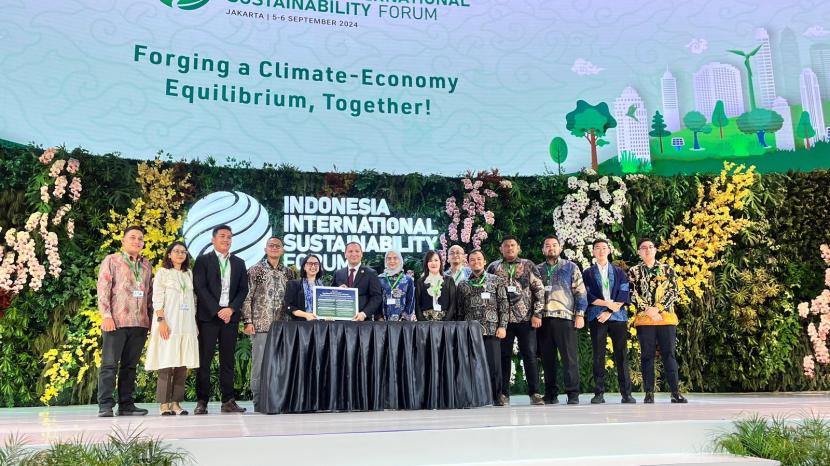Agribusiness in Indonesia is increasingly recognized as a strategic sector that can support the production of low-carbon raw materials essential for sustainable economic growth. As the country aims to reduce its carbon footprint, agribusiness plays a central role in creating eco-friendly materials, such as biofuels and plant-based feedstocks, that can replace fossil fuel-derived inputs in industries ranging from energy to manufacturing.
Cited from Kompas.com, at the recent Indonesia International Sustainability Forum (IISF) 2024, agribusiness was highlighted as a vital component in reducing emissions across supply chains. Industry leaders and government representatives noted that the cultivation of renewable resources could significantly reduce reliance on carbon-intensive materials. Jesslyne Widjaja, Executive Director of Golden Agri-Resources, emphasized that using agricultural products as low-carbon alternatives aligns well with the United Nations’ Sustainable Development Goals, particularly in promoting responsible consumption and production.
Agricultural raw materials, when managed sustainably, offer a double benefit: they sequester carbon during growth and reduce emissions when they replace traditional materials. For example, biofuel made from palm oil waste and other agricultural residues is already providing a cleaner alternative in the transportation sector. Innovations in this area allow Indonesia’s vast agricultural sector to contribute directly to its carbon reduction goals while creating value for farmers and local businesses.
Moreover, the government is investing in research and development to make these processes more efficient and environmentally friendly. Efforts are underway to improve the productivity of crops used in low-carbon applications, ensuring they require fewer resources like water and fertilizer, which can add to their carbon footprint if overused. By optimizing input usage, agribusinesses can ensure that low-carbon raw material production remains sustainable and economically viable.
Collaboration between private companies and government agencies is also helping build infrastructure to support these agribusiness initiatives. Investments in processing facilities and logistics networks allow agricultural raw materials to reach industries that can utilize them in low-carbon products. For example, companies are developing supply chains that can deliver bio-based materials to be used in sectors such as electric vehicle manufacturing, packaging, and construction.
Additionally, the push for low-carbon agribusiness solutions is creating new economic opportunities in rural areas. By expanding markets for low-carbon materials, agribusinesses can offer farmers stable income sources while promoting environmental sustainability. Programs to educate farmers on sustainable practices are key to this effort, enabling them to produce raw materials with minimal environmental impact and maximum economic benefit.
As agribusiness continues to evolve, it stands as a promising solution to Indonesia’s dual challenges of fostering economic growth and reducing carbon emissions. With the right policies, investment, and innovation, Indonesia’s agribusiness sector can serve as a model for other countries looking to balance development with environmental stewardship. By leveraging its natural resources sustainably, Indonesia is paving the way for a greener future that benefits both its economy and the planet.
Read More






 Monday, 02-03-26
Monday, 02-03-26







